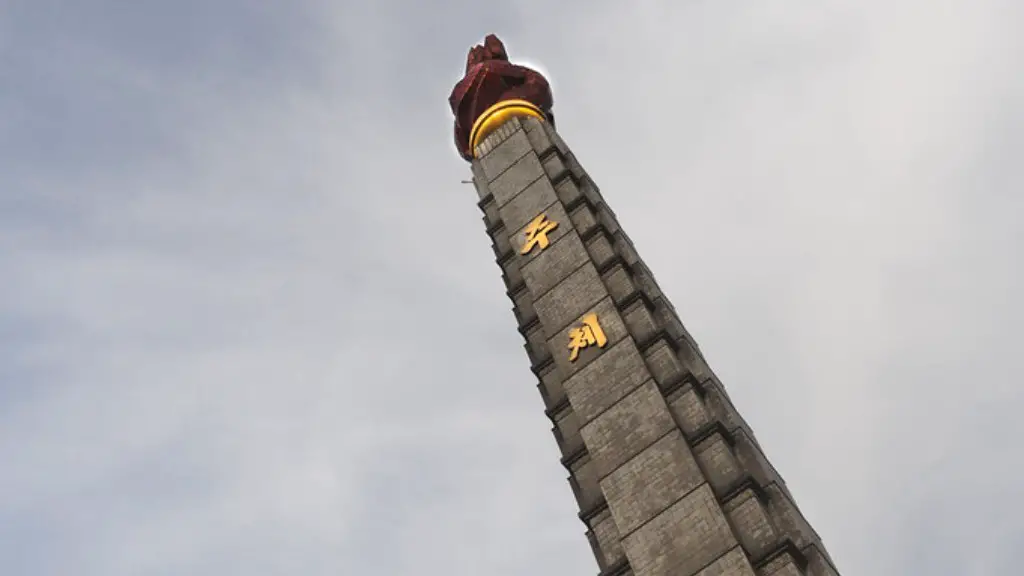Introduction
North Korea has long been isolated from the rest of the world due to its hardline stance on international relations. The United Nations Security Council imposed sanctions on North Korea in 2006 to pressure North Korea to abandon its nuclear and missile programs. Since then, the sanctions have gradually increased in severity and scope, with the most recent sanctions being imposed in 2017. This article aims to explore the various sanctions placed on North Korea, and how they have impacted the country over the years. It will also provide insight from experts on the efficacy of the measures, and present an analysis of the sanctions in their wider context.
Sanction Overview
The sanctions on North Korea were initiated in 2006 in response to its ballistic missile tests, which were a breach of United Nations Security Council Resolution \ 1695. These sanctions banned the sale of materials related to nuclear and ballistic missile technology, arms, luxury goods, and imposed financial restrictions on the country. Furthermore, they called for the inspection of any cargo being transported to and from North Korea.
The sanctions were increased further in 2009 after North Korea launched its Kwangmyŏngsŏng-2 rocket in April of that year, and again in 2013 following the North Korean nuclear test. More recent measures have been specifically targeted at the North Korean economy, in an attempt to discourage the country from pursuing its nuclear and missile programs.
This has included a collective ban on the sale of coal, iron, lead, and seafood from North Korea, as well as the restriction of trade in oil, gas, and luxury goods. The United States has also imposed individual sanctions on North Korean leaders and financial institutions in various countries, further limiting the country’s ability to engage in international commerce.
Impact of Sanctions
Since the sanctions were imposed, North Korea has been significantly impacted. According to estimates from the United Nations, economic production in the country has decreased by 0.7% in 2018. The decline is largely attributed to the decline in exports, as well as the lack of access to foreign aid. Additionally, sanctions on luxury goods have left the country with fewer resources and materials, leading to a decline in its standard of living.
Meanwhile, the UN estimates that these sanctions have resulted in a decrease in the number of North Koreans living in poverty from 44.1% in 2011 to 30.3% in 2018. Despite this progress, there are still a significant number of individuals in the North Korean population living in poverty. This is largely due to the slow, incremental process of reform that has been spurred by the sanctions, not necessarily the sanctions themselves.
Expert Perspective
Experts have shared a range of perspectives on the sanctions, particularly in relation to their efficacy. Dr. Heather Cochran, a Senior Analyst at the Center for International Security, opines that “it is very difficult to assess the overall efficacy of the sanctions, as there are a range of factors that influence the situation in North Korea, and a lot of these are out of the UN’s control.” Dr. Cochran further adds that “the sanctions have certainly had a significant impact on the economy and the citizens of North Korea, but they have not had the desired effect of curbing the country’s nuclear and missile ambitions”.
Analysis
The effectiveness of the sanctions imposed on North Korea is a pertinent question for international powers. While it is undeniable that the sanctions have had an economic impact on North Korea, their effectiveness in achieving their intended goals is debatable. The sanctions have not been able to curb North Korea’s nuclear and missile ambitions, and with the country now in possession of nuclear weapons, it appears that the sanctions have not been effective in this regard.
However, other experts contend that the sanctions have a long-term effect in that they dissuade countries and individuals from conducting business with North Korea. This can further limit the country’s access to foreign aid and resources, further limiting their capacity to pursue nuclear and missile programmes. So while the sanctions may not have been effective in the short-term, they could have long-term and indirect benefits.
International Relations
The sanctions on North Korea have had a significant impact on the international political landscape as well. The sanctions have amplified tensions between North Korea and its neighbours, and in particular, the United States. This has also hindered the potential for diplomatic progress, as both sides are now more entrenched in their positions and less willing to compromise. North Korea’s allies such as Russia and China have also resisted the sanctions, although they have still agreed to the UN’s sanctions measures.
The sanctions have further complicated the region’s security environment, and with the lack of diplomatic progress, it appears that a diplomatic solution will be difficult to achieve. This means that the situation could escalate further if tensions were to continue to mount, and this would further threaten regional and global security.
Domestic Situations
The sanctions have also had significant implications on the domestic situation in North Korea as well. It has curtailed the ability of its government to provide assistance to its citizens, and it has also caused increased hardships for ordinary North Koreans. For this reason, many experts fear that the sanctions can have unintended consequences, such as the potential for more serious forms of non-compliance and provocation.
Furthermore, North Korean citizens have also experienced an increase in political repression and human rights abuses under the sanctions, as these are often used as a tool for the regime to maintain control over its citizens. The sanctions have also further hindered the potential for economic growth in North Korea, with many of its citizens unable to access the resources and materials needed to improve their lives.
International Reactions
The international community has expressed mixed reactions to the sanctions imposed on North Korea. Some praise the sanctions as much-needed measures to pressure North Korea to abandon its nuclear and missile programmes. However, others view them as ineffective and believe that they will only increase tensions and possibly lead to further instability in the region.
Furthermore, there is some concern that the sanctions will further escalate the situation and lead to a conflict between the international community and North Korea. This could result in catastrophic consequences for the region, particularly if it were to involve the use of nuclear weapons, which could have catastrophic implications for global security.
Domestic Oppositions
The North Korean government is also opposed to the sanctions, viewing them as an infringement on its sovereignty and a violation of international law. It has accused the international community of unfairly targeting North Korea and of attempting to destabilize the country. North Korea has also taken a defiant stance, refusing to comply with the sanctions, and instead setting out to defy them and attempt to undermine their efficacy.
This further indicates the challenges involved in enforcing the sanctions and their potential counter-productive effects. This is a concern for many experts, as the sanctions are increasingly being viewed as an inadequate measure in addressing the situation in North Korea.
Conclusion
The sanctions placed on North Korea have been steadily increasing in severity and scope in an attempt to curb the country’s nuclear and missile ambitions. But while the sanctions have had an economic impact on North Korea, their effectiveness at achieving their intended objectives is debatable. Furthermore, the sanctions could lead to further instability in the region if tensions continue to mount. It is thus a pertinent question as to whether the sanctions will lead to a diplomatic solution or if they will only exacerbate current tensions.


